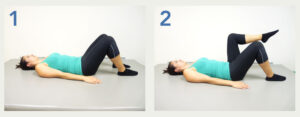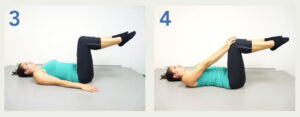A scoliosis diagnosis can be scary.
Well, not that scary. Even though there is no definitive cure for scoliosis, as a chiropractor for scoliosis in Springfield, IL I know that by addressing the underlying cause we can better manage scoliosis, reduce the symptoms, and stop its progression. The best part about chiropractic care for scoliosis is that it doesn’t rely on wearing a brace, prescription pain medication, or surgery for pain management, all of which bring their own risks and side effects, and don’t actually address the spine’s structural issues.
After a scoliosis diagnosis, it’s critical to increase our body awareness. Scoliosis causes an abnormal curvature of the spine resulting in pain, weakness, and changes in the way a person moves.
Not like that…that’s something else, above my pay grade. In mild cases, specific exercises and stretches alone are able to treat scoliosis, eliminating the risk of surgery. Now, I’m going to mention a word here that can be triggering for some people: the core. We’ve all had scarring experiences where this woman yelled at us for 50 minutes straight to engage our core.
And while I never wish to encourage the above behavior, our core strength is essential for any effective scoliosis treatment. Core strength determines our ability to control and support the spine’s curvature. With stronger lower back and abdominal muscles, we can better balance and stabilize our spine. Core strength won’t reduce the size of the curve, but they help reduce scoliosis pain and prevent its progression.
Plus, that takes a lot of core strength.
These scoliosis exercises may be just the ticket to relieving scoliosis pain by strengthening the core to stabilize the spine.
Best Exercises for Scoliosis Relief
Pelvic Tilts
Stretch tight muscles in the hips and lower back
- Lie on the back with feet flat on the floor and knees bent.
- Flatten the back against the floor by tightening the stomach and buttocks, and curling the pelvis bone inward.
- Hold for 5 seconds, remember to breathe like a normal human being.
- Release.
- Do two sets of 10.
Superman
Strengthen the lower back
- Lie on the stomach with forehead to the ground
Just like that.
- With the arms extended over the head palms down, lift both feet and arms.
- Hold for two breaths.
- Release.
- Keep doing this until Lex Luther is in jail.
Cat-Camel
This famous yoga pose keeps the spine flexible
- Start on the hands and knees. Make sure the back is level, and the head and neck are in a comfortable, neutral position.
- Take a big breath in and engage the abdominal muscles to lift the rib cage up and arch the back.
- Exhale and release, dropping the back and letting the belly fall while lifting the head toward the ceiling.
- Do two sets of 10.
Bird-Dog
Another exercise the yogis will know very well
- On the hands and knees, place the hands directly under the shoulders and knees directly under the hips.
- Extend one arm straight out while extending the opposite leg straight back.
- Hold for five seconds, remembering to breathe like a normal person.
- Repeat with the opposite arm and leg.
- Do 10-15 repetitions on each side.
Latissimus Dorsi Stretch
The latissimus dorsi, or lats as we call them at my gym, are the largest muscle in the upper back. This is a great stretch for people with thoracic scoliosis and lumbar scoliosis.
- Stand with good posture, feet should be shoulder-width apart and knees slightly bent.
- Reach over the head with both hands and grab the right wrist with the left hand.
- Bend slightly toward the right side until the stretch is felt on the left side.
- Hold for two breaths then return to the starting position.
- Repeat this on the opposite side.
- Keep repeating, 10 times on each side.
Abdominal Press
Strong abs take the pressure off the back muscles and help maintain good posture. They are also a great way to intimidate a threat.
- Lie on the back with feet flat on the ground and knees bent.
- Keep the back in a neutral, tension-free position.
- Raise both legs off the floor to a 90º angle.
- Engage the abs by using the hands to push down on the knees while pulling the knees toward the hands at the same time. This should create tension and the legs and arms should not move while pressing.
- Hold for three big boy breaths and then relax.
- Do two sets of 10.


Single-Leg Balance
Both narcissists and normal, happy people may be helped by doing this exercise in front of a mirror to visualize a straight spine.
- While standing, bend one knee up and balance on one foot.
- Hold there for 20 seconds.
- For an extra challenge, bring the arms across the chest.
- For an extra, extra challenge, keep the eyes closed.
- Do this five times on each side.
Squats
Believe it or not, the quads are part of the core. I don’t know if that makes things better or worse.
- Extend the arms out in front and side down, should be like easing into an imaginary chair.
- Lower until the thighs are parallel to the floor and the knees are over the ankles.
- Keep the body tight and push through the heels to return to starting position.
How to Practice Good Posture
Posture is critical to our overall health. Probably why our mothers and Sister Mary Ann Jones was always yelling at us to sit up straight. Good posture, especially in people dealing with scoliosis, can reduce pain and muscle tension. It also helps promote good nervous system function and improves respiratory function and mood.
Good standing posture looks like this:
- Drop the shoulders down and back
- Ears over the shouldersTuck the chin slightly so it’s not jutting forward
- Draw in the stomach slightly
- Unlock the knees
When sitting, make sure the ears stay over the shoulders and the legs are in a neutral, uncrossed position.
At the Springfield Wellness Center, our scoliosis treatment uses these therapeutic exercises in conjunction with chiropractic care. This all-natural scoliosis treatment option prevents scoliosis from getting worse and greatly improves a patient’s quality of life, not to mention it poses less of a risk than surgery, costs less, and gives patients the ability to harness the natural healing power of their own bodies.
Chiropractic’s goal is to improve the body’s innate ability to heal itself by restoring proper functioning of the nervous system. Studies show that chiropractic care improves spinal curvature, decreases pain, and increases flexibility through a combination of chiropractic adjustments and decompression. The freedom of scoliosis pain relief and improved range of motion makes it easier to strengthen the core muscles to support a healthy spinal structure, ensuring long-term scoliosis pain relief. People with scoliosis should call us or schedule a time to meet with one of our amazing doctors! Just because someone says there isn’t a “cure” for something doesn’t mean we’ll stop striving to improve the lives of our patients.
Get A $49 Complete Chiropractic Scoliosis Screening
Schedule Appointment
